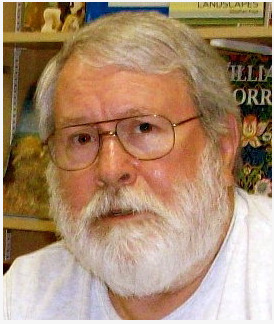Chuck Fager facts for kids
Quick facts for kids
Chuck Fager
|
|
|---|---|

Chuck Fager in Fayetteville, North Carolina
|
|
| Born |
Charles Eugene Fager
1942 (age 82–83) Birmingham, Kansas, U.S.
|
| Alma mater | Colorado State University |
| Occupation | Author, Editor, Publisher, Activist |
| Organization | Religious Society of Friends |
| Movement | Civil Rights Movement, Peace movement |
Charles Eugene Fager (born 1942), who is known as Chuck Fager, is an American writer and activist. He is a well-known member of the Religious Society of Friends, also called Quakers. Fager is famous for his work in the Civil Rights Movement and the Peace movement.
He has written many books and essays on religion and politics. His most famous book is Selma 1965: The March That Changed the South. This book tells the story of the 1965 Selma Voting Rights Movement. This important event helped lead to the passage of the Voting Rights Act, a law that protected the right of all citizens to vote.
From 2002 to 2012, Fager was the director of Quaker House in Fayetteville, North Carolina. Quaker House is a peace project located near Fort Bragg, a large U.S. Army base.
Contents
Early Life and Education
Charles E. Fager was born in Kansas into a Roman Catholic family and was the oldest of eleven children. Because his father was in the United States Air Force, his family moved often and he grew up on different military bases.
In high school, Fager began to question his beliefs. He became interested in religion from a new perspective, influenced by the ideas of C.G. Jung, a famous psychologist.
Fager started at Colorado State University in 1960. He joined the Air Force Reserve Officers' Training Corps (ROTC) and was a top cadet. However, he later lost interest in a military career and left the program. He earned his degree in Humanities in 1967. He also studied at Harvard Divinity School for four years.
Working for Change
The Civil Rights Movement
In 1964, Fager moved to Atlanta, Georgia, and joined the Civil Rights Movement. He started working for the Southern Christian Leadership Conference (SCLC). The SCLC sent him to Selma, Alabama. There, he joined the 1965 Selma Voting Rights Movement, which was organized by James Bevel.
During his time in Selma, Fager was arrested three times for protesting peacefully. He even spent a night in a jail cell with Dr. Martin Luther King Jr.. He wrote about these experiences in his book, Eating Dr. King's Dinner.
The Peace Movement
Fager's experiences with Dr. King's ideas of nonviolence changed his views on war. He had grown up on military bases and supported the military. But now, he became a conscientious objector, meaning he refused to fight in wars for moral or religious reasons.
Instead of military service, he had to do two years of alternative service. He worked for Friends World College and the New York City Department of Social Services. Fager also took part in many peaceful protests against the Vietnam War and was arrested twice. In 1968, he joined other writers in protesting the war by refusing to pay taxes that would fund it.
Life as a Quaker
Fager first met Quakers in 1965 in Selma, Alabama. He was impressed by their commitment to peace and social justice. He officially joined the Religious Society of Friends in 1969 while studying at Harvard. Since then, he has been an active member of different Quaker groups, called Meetings.
Writing and Career
Fager has been a writer since he was in high school. He started as a journalist in college. His first book, White Reflections On Black Power, was published in 1967. His most famous work, Selma 1965, came out in 1974 and is still read today.
Over the years, Fager has had many different jobs. He worked as a reporter in San Francisco and as a staff member for the U.S. Congress. For almost ten years, he worked for the U.S. Postal Service. Even while working these jobs, he continued to write books and articles.
In 1979, Fager started his own publishing company, Kimo Press. It mainly publishes books about Quakerism, many of which he wrote himself. He also started a journal called Quaker Theology, which discusses current events and religious ideas among Quakers.
After the September 11, 2001 attacks, Fager became the director of Quaker House, a peace organization near the Fort Bragg military base. He retired in 2012 but continues to research and write. In 2013, he was arrested during a peaceful "Moral Mondays" protest in North Carolina, showing his continued dedication to activism.
Personal Life
Fager has four children.
Selected Works
- White Reflections on Black Power, 1967.
- Uncertain Resurrection: The Poor Peoples Washington Campaign, 1969.
- Selma 1965: The March That Changed the South, 1974.
- The Magic Quilts: A Fantasy, 1981 and 1989.
- A Respondent Spark: the Basics of Bible Study, 1984 and 1994.
- Quakers Are Funny, 1987.
- Life and Death and Two Chickens: Stories for Children, Stories of Childhood, 1989.
- Fire in the Valley, Quaker Ghost Stories, 1991.
- Murder Among Friends, A Quaker Mystery, 1993.
- Un-Friendly Persuasion, A Quaker Mystery, 1995.
- A Quaker Declaration of War, 2003.
- The ... Bible: Quaker Essays, 2003.
- Why God Is Like A Wet Bar of Soap: Quaker Stories, 2004.
- Eating Dr. King's Dinner: A Memoir of the Movement, 2005.
- Tom Fox Was My Friend. Yours, Too., 2006.
- Friends and Torture, 2007.
- Quakers Are Hilarious, 2013.
- Paper Trail: Writings from the Front Line of Peace Action:, 2013.
- Meetings: A Religious Autobiography, 2016
See also
 In Spanish: Chuck Fager para niños
In Spanish: Chuck Fager para niños

